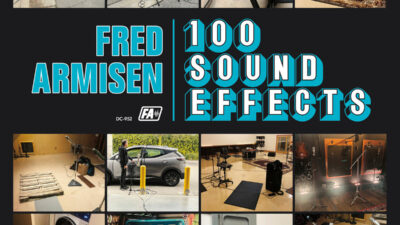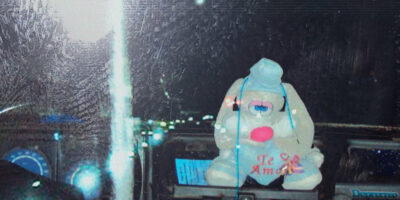This article previously appeared on Crossfader
Genre: Art Pop, Singer/Songwriter
Favorite Tracks: “Plastic,” “Quarrel,” “Doomed”
With only a handful of singles and EPs (including the powerful 2016 release LAMENTATIONS), Moses Sumney has spent the last several years acting as your favorite artist’s favorite artist, opening for acts like St. Vincent, Sufjan Stevens, and David Byrne, hanging out with Solange and TV on the Radio’s Dave Sitek, and recording music with Grizzly Bear’s Chris Taylor. That impressive resume has lead us to Sumney’s debut record, AROMANTICISM, “a concept album about lovelessness as a sonic dreamscape” that “interrogate(s) the social constructions around romance.” If that description seems unrealistic and pretentious, that’s because it is—we see lofty press release fluff describing albums like this all the time, and the music hardly ever lives up to the word porn in the liner notes. Rarely is the phrase “sonic dreamscape” ever written only to adequately summarize the record.
And yet . . . damn.
Somehow, someway, Moses Sumney called his shot, and AROMANTICISM is exactly as advertised—perhaps even undersold. The air that exists in these songs is palpable, filled with love, hate, pain, and joy, and the album floats with an unmatched amount of sincerity. At times art-soul, at times minimalist freak-folk, Sumney has pulled off one of the most beautifully textured and detailed albums of the year.
At a scant 34-minutes, Sumney uses the 11-song tracklisting to cut quickly and deeply to the core of AROMANTICISM’s nuanced and unwavering analysis of what the heart wants. This feels like an album that could’ve easily been overwrought with flowery but needless filler, but you can sense what was a focused and workmanlike undertaking to cut these songs to the essentials. And with that comes an impeccable circulation within the record; these songs just innately feel connected, bound together and pushed forward by a mystifying centrifugal force that begins with the exposed, almost powerless vocal chorus on “Man on the Moon (Reprise)” and ends on the dizzying and euphoric “Self-Help Tape,” where amidst swirling vocal harmonies Sumney begs us to, “Imagine being free / Imagine tasting free / Imagine feeling free / Imagine feeling.” In between exists expertly crafted songs with distinct but necessary flows, from the mid-tracklist “Lonely World,” a chaotic, drum-propelled rock track, to the early and easy jazz guitar crooner “Plastic.”
Early on in the record, it’s easy to see why Chris Taylor was an early fan. Sumney’s music certainly occupies a similar space to that era of 2000s folk music, with a kind of studio-detailed approach to making overly layered and technically perfect melodies. The way that his voice carries and, in turn, the way its mixed, both layered and individually, are reminiscent of the way artists like Bon Iver, Grizzly Bear, or Radiohead have delicately approached folk music—listen to the vocals of “Indulge Me” and compare them to that of Thom Yorke’s on “Give Up The Ghost” or Ed Dorste and Daniel Rossen’s on “Dory.” The careful use of looping and layers is so satisfyingly fragile, with the timbre of his voice almost graceful in its ability to linger in vulnerability. Sumeny frequently has performed live with just a guitar and looping pedal, and that experience has clearly led to a masterful awareness of his own vocal control.
Combining his unique vocals with his affinity for pulling folk and soul elements into his work totally supports AROMANTICISM’s vision to represent “lovelessness as a sonic dreamscape.” From the trivialness of calling a lover back for fear of exposing your true self (“Don’t Bother Calling”), to establishing firm, but honest and innocent intentions (“Make Out In My Car”), Sumney takes the small and sometimes overwhelming moments of romance and makes them seem almost unearthly. That otherworldly quality that pervades the record gives even heavier weight to songs like “Plastic” or “Lonely World,” which tackle far more existential questions about finding love through an unknowing self and an unknowing world.
AROMANTICISM is unwavering in its ambition and unflinching in its powerful delivery. Moses Sumney’s small body of work leading up to this release, while fantastic in its own right, can now be seen as a testing ground for ideas and, in some cases, songs that would appear on the album. For Sumney to pull off this project with such seamless precision and effortless grace is a testament to how natural his artistic ambition manifests itself. As he begs into the ether on the closing track for us to imagine feeling, you know the pleas won’t end there, and if AROMANTICISM is any indication than this is only the beginning of Sumeny’s long, tireless, and glorious march towards understanding self.
Verdict: Recommend
















Comments